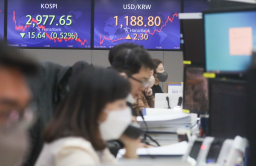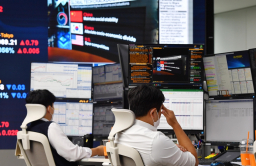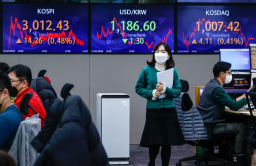-
KOSPI 2577.27 -2.21 -0.09%
-
KOSDAQ 722.52 -7.07 -0.97%
-
KOSPI200 341.49 +0.02 +0.01%
-
USD/KRW 1396 -2.00 0.14%
Kosdaq: Will January effect occur in 2022?
Year-end review
Kosdaq: Will January effect occur in 2022?
Some retail investors doubt the bullish trend will continue into January as the index nears a 52-week high
By
Dec 31, 2021 (Gmt+09:00)
2
Min read
News+
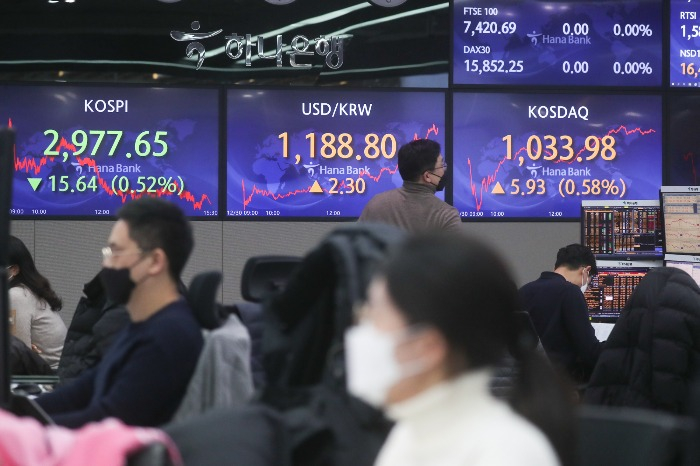
South Korea’s tech-heavy Kosdaq index tends to rise every January as many Korean retail investors rush to dump their stocks just before the ex-dividend date of end-December, to avoid hefty income taxes, and go back to repurchase stocks in January. In Korea, individual investors owning 1% or more shares in main bourse Kospi companies or 2% or more stakes in secondary bourse Kosdaq companies are classified as major shareholders, subject to pay 22% to 27.5% tax of the capital gains. Individuals who own a listed company’s shares worth 300 million won ($251,994) or more are also subject to the tax.
Market watchers in Korea have different outlooks to the Kosdaq index in January 2022. Some experts say the so-called January effect will repeat, while others say the index has already risen to the peak level.
The Kosdaq index has risen every January for the past 10 years, except in 2017, 2020 and 2021. The jump hit a record-high 15.4% in January 2018. Market experts said the January effect is more apparent in the retail investor-reliant Kosdaq than in the main Kospi.
“Within the month after the year-end ex-dividend date, every year from 2011 to 2021, the Kosdaq index has soared 6.1% on average. Retail investors may consider increasing exposure to Kosdaq exchange-traded funds (ETFs),” said Korea's Shinhan Investment Co.’s analyst Lee Jeong-bin.
“The Kosdaq index and small and mid-cap stocks are relatively strong in January every year, backed by retail investors’ net purchases,” said Lee Kyung-min, an analyst at Daishin Securities Co. “Individual investors could see more opportunities on the Kosdaq and small and mid-cap markets than on the main Kospi, the index of which will see fluctuation due to exits of some institutional investors simply targeting dividends,” Lee added.
Meanwhile, Yuanta Securities Korea said the Kosdaq-listed stocks could be sluggish until the end of January 2022 as the minor league index already soared 7.1% in December 2021. As the index closed at 1,033.98 on Dec. 31 of 2021, only 2.7% behind the 52-week high of 1,062.03, investors doubt if the bullish trend will continue in January of the new year.
On the other hand, Korea’s Hana Financial Investment Co. advised picking the shares retail investors dumped just before the ex-dividend date, rather than simply tracking the Kosdaq index. The brokerage firm said those dumped stocks have a higher rate of return than the market average every January.
In 2021, Korean individual investors went on a selling spree of shares in entertainment agency Cube Entertainment Inc., gaming company Com2uS Holdings, top entertainment agency SM Entertainment Co., vision inspection system manufacturer Intekplus Co., secondary battery materials developer L&F Co., gaming developer SundayToz Corp. and leading artwork auction Seoul Auction Co.
Write to Hyeong-Gyo Seo at seogyo@hankyung.com
Jihyun Kim edited this article.
More To Read
-
Dec 31, 2021 (Gmt+09:00)
-
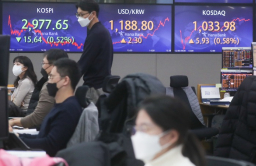 Year-end reviewPension funds sell net $21 bn worth of shares in 2021
Year-end reviewPension funds sell net $21 bn worth of shares in 2021Dec 31, 2021 (Gmt+09:00)
-
Dec 27, 2021 (Gmt+09:00)
-
Dec 29, 2021 (Gmt+09:00)
-
Dec 29, 2021 (Gmt+09:00)
-
 Year-end reviewKosdaq: Perennial bush league as blue chips favor Kospi
Year-end reviewKosdaq: Perennial bush league as blue chips favor KospiDec 28, 2021 (Gmt+09:00)
-
Dec 26, 2021 (Gmt+09:00)


